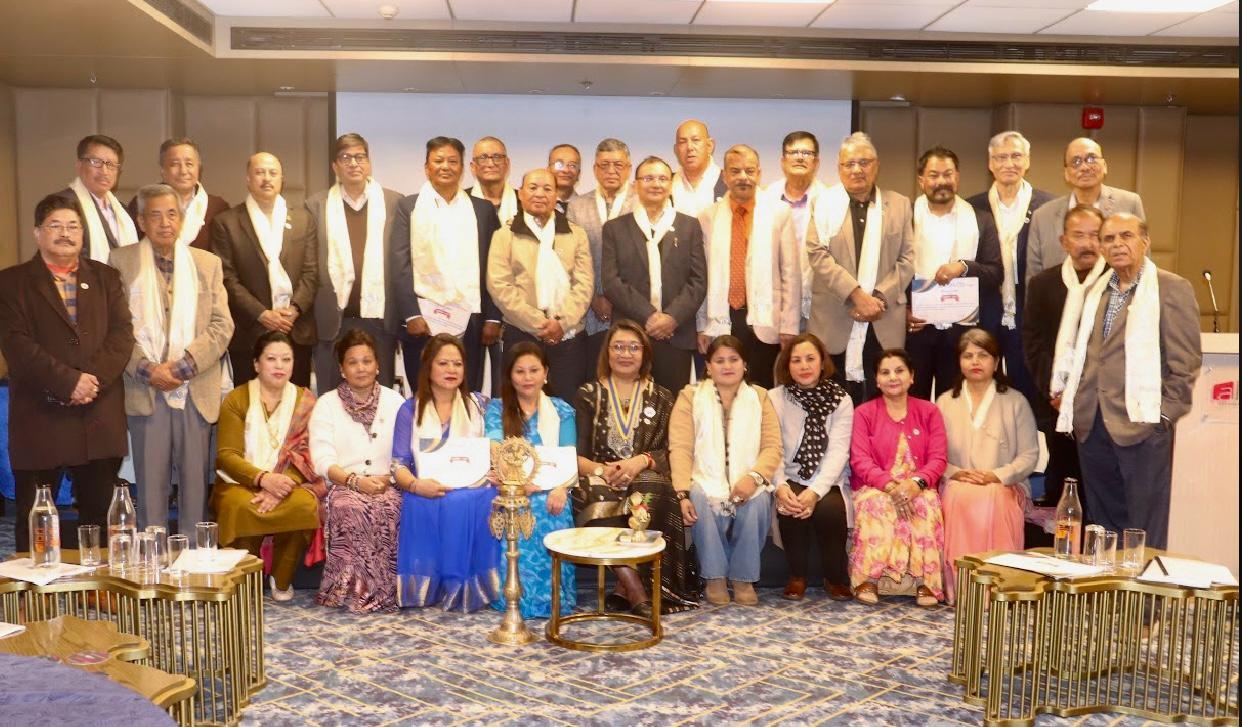Comments on Nepal’s Information Technology Bill 2075, Prabin Subedi
20 January 2020, Kathmandu
It is confirmed that some of the provisions in the Information Technology Bill are contrary to the constitution of Nepal, various international treaties and parties of Nepal, and other national recognition. Several discussions were held on the provision of the preliminary draft of the Bill from dozens of experts and stakeholders. Despite this, there is no substantial change in the preliminary draft, but with the passing of the Bill, the demands of the stakeholders in the process of law-making in Nepal seem to be ignored. Since such laws are not accepted by the society in some cases and cannot be enforced by the government, it is now time to think about who will be responsible for the resources and time invested in making such laws.
There isn’t enough legal system to address the culprits of abuse by technology in Nepal. There has not been any amendment to the prevailing laws made to regulate the usage technology in 2063. After a long-time, an IT bill has been brought in to address the various aspects and concerns of information technology.
Some aspects of the Bill are positive. For example, the legal definition of the various words and systems contained in the Bill is a much clearer provision than the existing Electricity Transaction Act-2063 in relation to digital signatures. Similarly, legal recognition of service flows through electronic means, the arrangements regarding domain names for the first time in the legal history of IT in Nepal, and the information technology industry are positive.
Information, security and privacy, cybersecurity, service providers, and social networking systems must be considered progressive. A quick look at the arrangements, including research and evidence collection, reveals the legal provisions of the information technology sector to be promising. In the context of increasing misuse of information technology in Nepal, some provisions in the Bill appear to facilitate the prevention and regulation of harmful activity. However, some of the provisions of this bill are contrary to the constitution of Nepal, various international treaties that are part of Nepal and other national recognition. While some provisions in the Bill are required to regulate the use and misuse of information technology, amendments in many cases appear to be necessary.
There is no explicit provision for what the jurisdiction will be after the bill has been passed as a law. Article 1 (3) of the Bill states that the act shall be applicable all over Nepal and all people living in Nepal wherever a violation of the action occurs. It is essential to mention the reason for the specification of jurisdiction being applicable throughout Nepal and then specifying the external administration. If the act is passed, it will undertake universal jurisdiction if the law is to be applied to anyone who is in violation of the Act.
Although it is the sovereignty of the state to confer universal jurisdiction, no country has been seen to apply authority to the world under such laws. Laws that are thus unexplained must be reconsidered. Article 83 of the Bill states that cyberbullying should not be done. The clause states that the use of electronic systems should not be done to harass, humiliate, discourage, threaten another person continually. In section 96 (23), this act is considered guilty and fined up to Rs. 50,000 or imprisoned for up to six months. According to this section, the bill does not even define a criminal offense. Such a straightforward arrangement means that the future punishment officer has to explain the act before giving out the punishment. Defining criminal liability by explaining it contradicts the principle of justice.
Although the bill seeks to make specific arrangements related to electronic content namely bullying in Article 83 of the Bill, misuse in Article 88 and transmission on social media in Article 94, the bill hasn’t been able to clarify the inter-link between these issues. Through these three points, the government seeks to control the constitutional and human rights of freedom to the speech of the individual by placing it under the criminal act.
In order to curb the human right, the act of cyberbullying against Article 83 is punishable by a fine of up to Rs 50,000 or imprisonment for up to six months. Similarly, provision of punishment as imprisonment up to five years and fine of up to 15 lakh for the misuse of electronic means is present inArticle88 and imprisonment of up to 4 years or a fine of15 lakh for the use of social media against Article 94 has been imposed.
Existing laws of Nepal include imprisonment for up to five years for adulteration of food, cruel and inhuman or degrading treatment, abortion after more than 25 weeks and acid-attacks to deform one’s body or cause body threats. Similarly, imprisonment is imposed for up to three years for touching someone’s sensitive parts for negative motive or misuse of a child-sex. A public nudist can be imprisoned for up to 6 months. The act of inciting hatred on a person using the Internet exceeding the punishment of imprisonment for five years for such cruel and inhumane offenses is against the principle of penalties and equality.
The Bill also covers issues addressed by other laws that may interfere between the co-relation of Nepal’s sovereignty, geographical integrity, nationality or national unity, independence, dignity, or governmental unit. Similarly, acts of contempt for spreading hatred on any basis, including discrimination or untouchability, contempt for labor, disruption of peace, and security, are included in other laws.
It is contrary to international practice to make criminal liability for imprisonment for up to five years for transmitting content through electronic media, which are being regulated based on other laws. The writ petition, filed with the demand of dismissal of the prevailing Electricity Act, 2063, is under consideration in the Supreme Court. The petition states that the act is unconstitutional.
Article 92 of the Bill could become an additional weapon to prove the government as autocratic. According to the clause, the department may direct the removal of such content or information on the government’s communication to the social network. Without its justification, necessity, or judicial scrutiny, no one can stop the government from becoming absolute. Even if the public questioned any work done by the government, such material could be prosecuted, accusing them of inciting hatred or violating peace and security. Since this provision is unconstitutional and contrary to legal rule and democratic practice, amendments are urgently needed.
Article 19 of the international treaty on civil and political rights,1966, which is in support of Nepal, and Article 17 of the Constitution of Nepal guarantees freedom of thought and expression. It is not justified to constitute a law with criminal liability for exercising those rights via electronic media. Even the human rights committee under the International Treaty on Civil and Political Rights mentioned in 2011, imposing criminal obligations for expression of speech is contrary to Article 19 (2). It is made clear that the act of threatening, arresting, prosecuting, and punishing a person for the purpose of expressing something is contrary to Article 19 (2) of the treaty.
When making a law, the lawmaker must also study the relevant international documents. Ignoring this obligation, one should also be aware that national pride is being blurred when the new law is framed opposing international practices. Likewise, Article 19 (3) and commentary of the Articles stipulate that in some instances where the right to exercise freedom of expression would have a severe impact on national security or the dignity of other persons, the act would be subject to civil liability rather than a criminal liability. This does not seem to have caught the attention of the lawmaker. Without such detailed discussion, the decision of the Bill Committee has also made it clear how the laws of Nepal are framed.
Article 306 of the prevailing Criminal Code provides for the avoidance of dishonor. The clause also provides for the exception that in some cases, what is expressed will not be considered an insult. A clear exception has been made for publishing the truth with evidence and grounds for the benefit of the general public, the conduct of the duty of the civil servant, the merits and demerits of a topic, public interest, good faith or morality. However, there is no exception in the case of doing the same thing digitally. If this bill comes into law in this case, then for the sake of social welfare or public information, publishing/broadcasting will have to face criminal liability due to unclear laws.
Article 94 of the Bill provides that programs having negative impacts shouldn’t be transmitted or operated, but these programs haven’t been defined. This clause addresses only the unauthorized access through malware or viruses in order to transmit or operate a program that adversely affects the purpose of obtaining, altering, deleting or deactivating information. This section does not address the methods of accessing information, including phishing, which is done without a third-party program. Likewise, even though operating or transmitting such programs is a criminal offense, it is not considered a crime to create, import, or sell the program. The creation of laws that address all aspects of a single activity, not just one activity, is more likely to be a long-established law.
Article 89 of the Bill exempts the service provider from facing criminal liability solely because of providing access to third party information or data or links. In the restrictive phrase of this clause, the law is contrary to the original clause. While providing access to such content, there is no provision for a criminal offense, but there is a vague provision that the restrictive phrase shall not exempt from offense if any information, fact or link mentioned or contained in any factual statement violates the prevailing law. It is not clear exactly what kind of service provider the bill regulates.
Since the Telecommunications Act is applicable for internet service providers, it should be kept in place to regulate various e-commerce platforms. On the other hand, it is unclear in what circumstances the service provider is said to be responsible. In view of international recognition, liability is provided only if two elements exist for this type of service provider. First, it should be intentional for a provider to have that kind of content. Second, there should be no reasonable attempt to remove it as soon as possible after it has been found to contain such content. Since such an arrangement is not in the Bill, it seems clear that international recognition, even when drafting a bill or passing it through a committee, is ignored.
There was a lot of debate about the special arrangements for social media in the IT bill. The law governing the registration of social networks proves the knowledge about the internet to be very low in Nepal’s lawmakers. According to one statistic, there are currently more than 3,000 social networks in the world, so the provision to register them all in Nepal is very impractical and baseless. The legal system that allows or restricts the operation of the social networks based on registration in Nepal using a law that does not even have a clear definition of a social network will limit Internet freedom and Internet access, which is universally regarded as a human right. In addition, Nepal will face criticism because it is against various international norms and documents. It is also technically not possible to ban the unlimited number of social networks completely. If the government wants to bring social networks into the tax realm, it can be brought under the tax domain by demanding accounting or other alternative statistics for advertising on those networks.
The government does not need to have faith that it is easy to find evidence of a crime in the country by registering social networks. For evidence and research, it is best to make a mutual legal aid treaty or be a party to the international treaty on cybercrime. Even in Article 99 of the Bill, there seems to be a problem and needs an urgent amendment. According to this clause, there is a provision for criminal liability even if the organizer, managing director, or executive head of an organization not involved in criminal activity must face offense. This provision, which is contrary to the normative principles of criminal justice, has the obligation of the actions of someone else, in the absence of both the motives and the functions of the person, solely based on their position.
Article 85 provides for non-compliance with the prevailing Nepalese laws in relation to Article 96 (25) of the provision that sexual harassment should not be used via electronic media. In Article 224 of the prevailing Civil Code, there is a provision of imprisonment for up to three years and a fine of up to 30 Lakh. The same offense has been imposed for a penalty of 2 Lakh or imprisonment for up to three years as per Article 96(25). This is sure to lead to additional legal complications.
Article 86 of the Bill also seems to have relied on the trend without any study or research. This section covers the title of producing, collecting, distributing, publishing, displaying, disseminating, or buying obscene material. In this clause, the word buying has been omitted, and the word ‘Accumulation’ has been placed in order to have a very different meaning from the title. In view of Article 86 and its restrictive phrase, it is clear that the legislature hastily drafted and passed it without understanding the justification of every word contained in the Bill and without even analyzing its implications.
In some of the former Public Crime Control Act and the current Civil Crime Code, pornography has been arranged as a crime. Article 121 of the Code provides that no books, tracts, etc. should be made or sold. The Bill defines the prohibition of storing pornographic material only electronically, without regard to the intention, as there is law existing against sale, distribution, rent, or to display to the public.
If such a law were made, Nepal would be the first country with a fine of up to 10Lakh or imprisonment of up to three years or both, even if such material is accumulated for personal use. If the lawmakers amend the clause for the provision of pornographic content related to children, then there is no need to say criticize this article in the spirit of international law on children belonging to Nepal. Representatives who even passed the restrictive phrase of this clause have probably not studied it well.
Unless this restrictive phrase is amended, it will be inadmissible to transmit, receive, or store any sexual material for research, law enforcement, teaching, or medical purposes. Because the restrictive phrase only provides for exceptions regarding child sexual content. Although some sections of the Bill are forbidden from publishing or broadcasting certain content electronically, it is not explained what publishing or broadcasting means.
Since Article 47 of the existing Electricity Transaction Act is not interpreted by the legislature as such, the Act has been used to punish personal communication for up to ten years before being understood by the Supreme Court in 2073. It seems clear that the legislator has failed to address even the problems and challenges brought by past laws.
In Articles 88 (3) and (4) it is mentioned that the use of electronic means for human trafficking or abduction or sell-buy drugs or to perform any act as prohibited by the prevailing laws should not be done. Only a few criminal offenses mentioned in the article don’t make sense. Since lawmaking should be transparent, general rules should not explicitly prohibit acts of crime, such as human trafficking and abduction or drug sales, as mentioned in the Bill, and other offenses such as forgery, gambling, tobacco advertising, etc. also must come under the article.
The Bill does have some important provisions on the topic of research, but there seems to be some miscounts about the essential procedures to be pursued in information technology research. Nowadays, all forms of crime using information technology have been arranged for investigation and evidence collection of offenses under this bill. If the law is refined, it will better assist in the study of all the crimes involved in information technology.
According to this bill, imprisonment can be carried out for up to five years, so it is necessary to amend the law-making system of the court. In case the offender has not been deemed guilty, to exploit or use fraudulent or unlawful acts sexually and offers to meet, motivate, engage in activities or establish an online relationship, the imprisonment system for up to three years has to be amended.
It is also necessary to balance the punishment and the offenses contained in the Bill with other laws. The bill threatens to hinder the development of information technology if it adopts the same rules. The Bill has made a compulsory provision for import and approval of any information technology. It is good to allow information technology to be used only after approval in the banking, health sector, etc.. Still, it is not practicable to approve all the equipment brought for professional and personal use. Similarly, some of the provisions in the Bill regarding privacy have been made in the prevailing criminal code of the country and the act on maintaining personal confidentiality, so amendments are required in this category as well.
Source: Click Here







